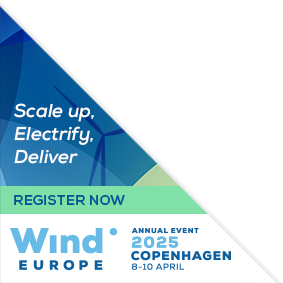We would like to invite you to come and see the posters at our upcoming conference. The posters will showcase a diverse range of research topics, and will give delegates an opportunity to engage with the authors and learn more about their work. Whether you are a seasoned researcher or simply curious about the latest developments in your field, we believe that the posters will offer something of interest to everyone. So please join us at the conference and take advantage of this opportunity to learn and engage with your peers in the academic community. We look forward to seeing you there!

PO045: Increasing Social Acceptance by Reducing Light Pollution - An Investigation on the Introduction of Aircraft Detection Lighting Systems in Germany
Jonathan Lenz, Product Manager, Lanthan Safe Sky Ltd.
Abstract
For wind turbines with a total height of over 100 meters, German law requires red obstruction lights (beacons) at night to ensure aircraft safety near a wind farm. With the expansion of wind power, residents (near wind farms) perceived the red beacons as disturbing. This light pollution was one reason for several complaints and legal action against project developers and operators. It led to a delay or even prevention of the construction of wind turbines in area in. In 2018, the German federal government addressed this problem by amending the Renewable Energy Sources Act (EEG), thus making it mandatory to equip wind turbines with an Aircraft Detection Lighting System (ADLS).
ADLS was developed over the last two decades and only turns on the red beacons if a moving aircraft in the vicinity of a wind farm at night. Initially, ADLS detection methods were often radar-based technology. Now, transponder solutions have been established. Transponders are mandatory for all aircraft in German airspace and transmit position and height. ADLS providers detect and evaluate the information using a receiver in the wind farm and then controlling the red beacons on the wind turbines to reduce in average 98% of the light pollution at night.
Our research project X-Radar analyzes the political process, the implementation process in our wind farm, and the influence on residents in Hamburg Bergedorf and North Frisia through ADLS. We present our research results from different surveys and expert interviews and discuss our experiences implementing a transponder-based ADLS. The results show that ADLS can reduce light pollution and can have a positive effect on the social acceptance of wind turbines. However, the local circumstances matter and should be considered in the regulatory processes for efficient implementation of ADLS











